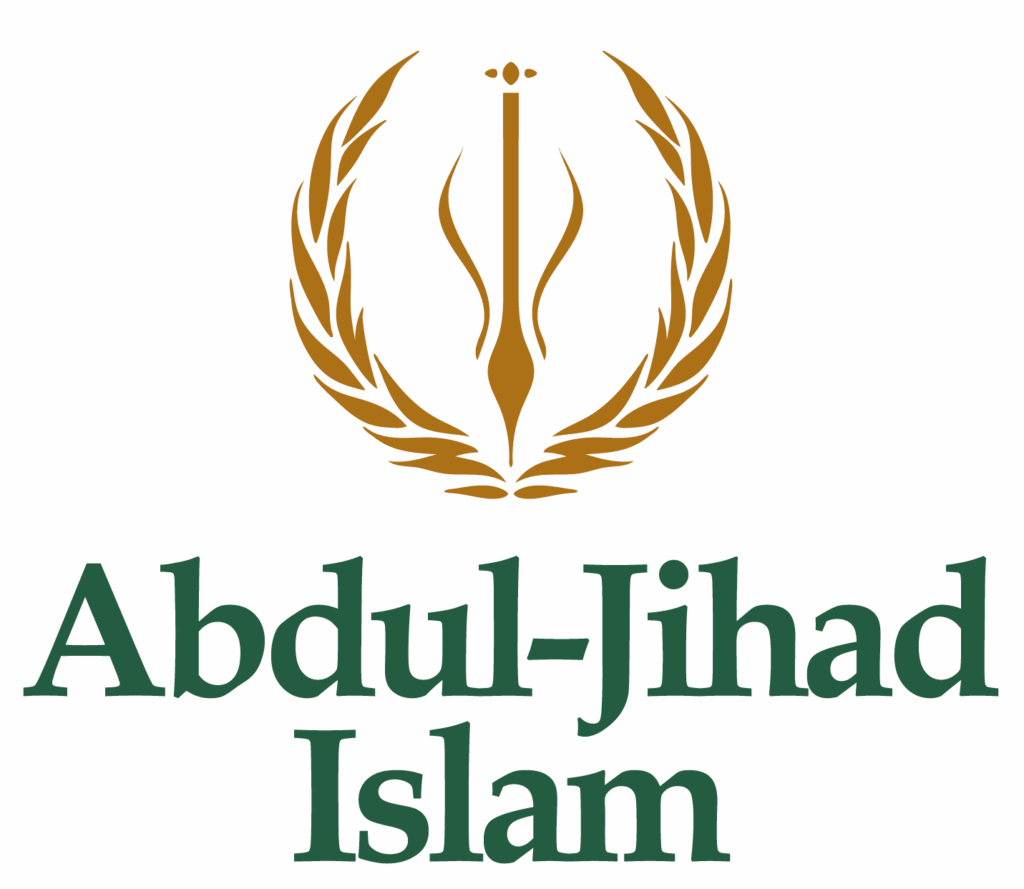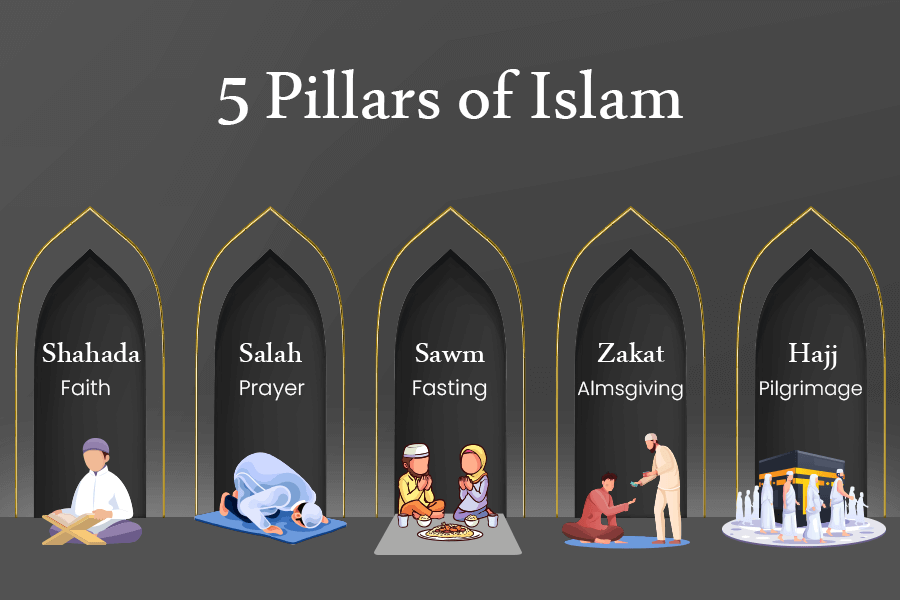Introduction: Building Faith Step by Step
Islam is not just a belief system but a complete way of life. At the heart of this way of life are the Five Pillars of Islam. These are not abstract concepts but practical acts of worship that guide Muslims in faith, discipline, and community. Understanding and practicing them daily strengthens our connection to Allah and brings purpose to every moment of our lives.
The Prophet ﷺ said:
“Islam is built on five [pillars]: testifying that there is no god but Allah and that Muhammad is the Messenger of Allah, establishing prayer, giving zakah, performing Hajj, and fasting in Ramadan.” (Bukhari, Muslim)
These five foundations are simple, yet powerful. Let’s explore each pillar and how we can live them meaningfully every day.
1. Shahadah: Testimony of Faith
The shahadah: “La ilaha illallah, Muhammadur Rasulullah” – is the declaration that there is no god but Allah and that Muhammad ﷺ is His messenger.
Meaning: It is not only words on the tongue but a conviction in the heart and a commitment in action.
Daily Life Application: Renew your shahadah daily as a reminder of purpose. Say it when facing difficulties to strengthen your trust in Allah. Parents can also teach children to say it with love and pride.
2. Salah: Daily Prayer
Prayer is the soul’s direct connection to Allah. Muslims are required to pray five times a day, each at its appointed time.
Meaning: Salah disciplines the heart, mind, and body. It reminds us that Allah is the center of life, not our distractions.
Daily Life Application: Use prayer as a break from stress at work or school. Set phone reminders or apps to help stay consistent. Even if busy, pausing to pray recharges the soul more than any coffee break.
3. Zakah: Giving in Charity
Zakah purifies wealth and helps those in need. It is a fixed portion (usually 2.5%) of one’s savings given yearly to the poor and deserving.
Meaning: It reminds us that wealth is a trust from Allah, not a possession. Giving zakah protects us from greed and connects us with the struggles of others.
Daily Life Application: Practice daily generosity even outside the yearly obligation. Give a meal, sponsor an orphan, or simply smile at others — all are acts of charity.
4. Sawm: Fasting in Ramadan
Fasting during Ramadan is one of the most spiritually uplifting experiences for Muslims. From dawn to sunset, believers abstain from food, drink, and desires.
Meaning: Fasting teaches patience, self-control, and empathy for the poor. It renews the heart’s reliance on Allah.
Daily Life Application: Beyond Ramadan, consider fasting Mondays and Thursdays or the white days (13th–15th of each lunar month). Fasting builds resilience and strengthens willpower against temptation.
5. Hajj: Pilgrimage to Makkah
Hajj is a once-in-a-lifetime obligation for those physically and financially able. Millions of Muslims gather in Makkah each year to perform rituals that connect them to the legacy of Prophet Ibrahim (AS).
Meaning: Hajj symbolizes unity, humility, and total submission to Allah. Standing among millions in ihram reminds us that all are equal before Him.
Daily Life Application: Even if you haven’t gone for Hajj, live its lessons, wear simple clothes sometimes to practice humility, increase dhikr, and reflect on life’s temporary nature.
Why the Five Pillars Matter Together
Each pillar builds upon the other:
1. Shahadah is the foundation.
2. Salah maintains the connection.
3. Zakah purifies wealth and heart.
4. Sawm strengthens discipline.
5. Hajj crowns a life of devotion.
Together, they shape a Muslim’s faith, character, and purpose. Ignoring one weakens the structure, but living all five brings balance and strength.
How the Five Pillars Strengthen Each Other
The beauty of Islam is that the pillars are not separate; they reinforce one another. Shahadah fuels the sincerity of salah. Salah softens the heart to give zakah. Fasting strengthens discipline for prayer and charity. Hajj gathers the pillars’ lessons in one journey of unity and devotion. When practiced, the pillars create a growth cycle, grounding the believer in faith while uplifting their daily life.
Modern Reflection: Living the Pillars in a Busy World
Today, Muslims juggle work, studies, and family. Some feel that practicing the pillars entirely is difficult in modern life. But the truth is, these acts were meant to ground us in all times and places.
1. Shahadah helps us resist the pull of materialism.
2. Salah gives structure in a chaotic world.
3. Zakah addresses global inequality.
4. Sawm builds resilience in a culture of excess.
5. Hajj reminds us of unity in a divided world.
6. The pillars are not outdated but timeless anchors for human well-being.
Reflection for the Reader
Ask yourself:
· Do I live the shahadah daily through choices, not just words?
· How can I make salah more consistent and focused?
· Am I generous in charity, even outside zakah?
· Can I fast voluntarily to grow spiritually?
· What lessons of Hajj can I live by until Allah grants me the chance to go?
· Which pillar do I need to strengthen most in my daily life?
A Journey Shared in My Book
The Five Pillars gave me stability even in prison, where life was stripped down to the basics. Through shahadah, salah, and fasting, I felt freedom and strength. Charity connected me to others, and though I could not perform Hajj yet, its lessons humbled me.
Reconnect with Your Faith: Discover the Impact of the Five Pillars of Islam
In “Practicing Islam in Prison and Society”, I share how the Five Pillars shaped my journey and how they can transform anyone’s life, no matter where they are. If you want a simple, powerful way to reconnect with Islam, start with these pillars and see how your daily life changes.

